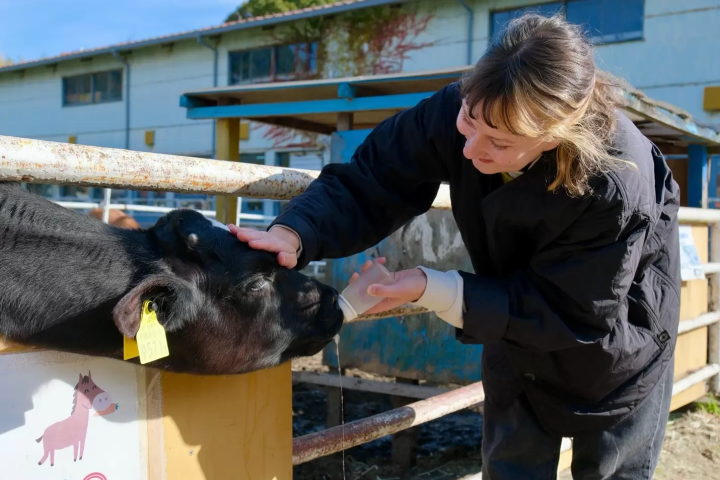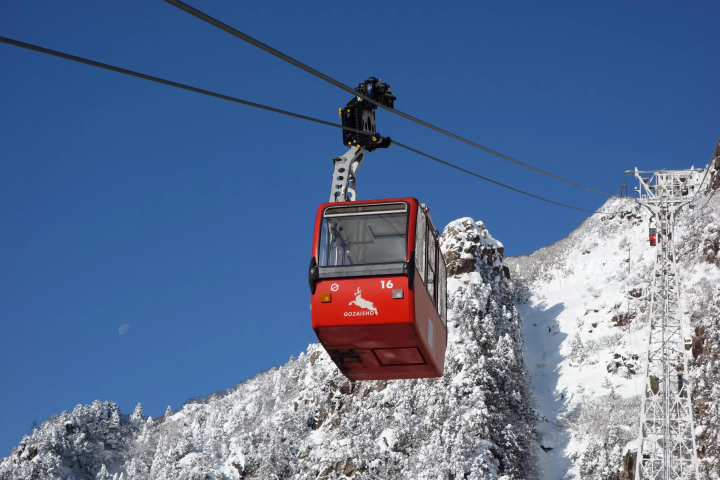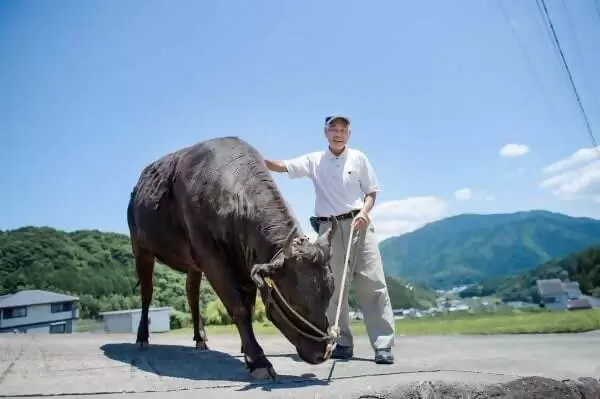[Tokyo/ the Kabukiza Theatre] Introducing the special visuals and first day digest video of the March performance and KABUKI ON DEMAND
![[Tokyo/ the Kabukiza Theatre] Introducing the special visuals and first day digest video of the March performance and KABUKI ON DEMAND](https://resources.matcha-jp.com/resize/720x2000/2024/03/19-173699.webp)
At the Kabukiza Theatre za, a different Kabuki performance is performed every month. the Kabukiza Theatre is the only place in the world where you can watch Kabuki every month! Even in the same play, the scenes that are performed differ depending on the time (for example, only part of a total of five scenes are performed), and the atmosphere changes depending on the Kabuki actors performing. This time, we will give you an idea of the works being performed this month through special visuals and...
-
Table of Contents
- Matinee ① SUGAWARA DENJU TENARAI KAGAMI Terakoya (11:00-12:24)
- Matinee ②KEISEI DŌJŌJI (12:59-13:27)
- Matinee ③Genroku Chūshingura OHAMA GOTEN TSUNATOYO-KYŌ (13:47-15:20)
- Evening Show ①ISE ONDO KOI NO NETABA (16:15-19:55)
- Evening Show ②Rokkasen Sugata no Irodori KISEN (20:15-20:46)
- Introducing KABUKI ON DEMAND
Matinee ① SUGAWARA DENJU TENARAI KAGAMI Terakoya (11:00-12:24)
![[Tokyo/ the Kabukiza Theatre] Introducing the special visuals and first day digest video of the March performance and KABUKI ON DEMAND](https://resources.matcha-jp.com/resize/720x2000/2024/03/13-172041.webp)
Matsuomaru on the left, Genzo on the right. They both have swords, but are they enemies?
Synopsis
The former imperial minister and master calligrapher Kan Shōjō has now been exiled and his family are in grave danger. Takebe Genzō was Kan Shōjō's most gifted disciple. Genzō runs a small school in the country and is sheltering Kan Shōjō's son and heir, Kan Shūsai, whom they are trying to pass off as their own son. However, word has reached the enemy that Kan Shūsai is at their school and Genzō has been ordered to behead him. Moreover, the retainer Matsuōmaru who knows Kan Shūsai's face is to come to inspect the head. Genzō's only hope is to kill one of the other students as a substitute. On that day, a new student named Kotarō who has a refined bearing arrives. Genzō takes the terrible decision to kill him in place of his lord's son.
Matinee ②KEISEI DŌJŌJI (12:59-13:27)
![[Tokyo/ the Kabukiza Theatre] Introducing the special visuals and first day digest video of the March performance and KABUKI ON DEMAND](https://resources.matcha-jp.com/resize/720x2000/2024/03/13-172043.webp)
Kiyokawa. The number and design of hairpins change depending on the role.
Synopsis
This is one of the several dances based on the legend of Anchin and Kiyohime. This version of the work differs from 'The Maiden at Dōjōji Temple' in that Kiyohime's spirit appears as a courtesan. The priest Anchin is in reality, the Heike warrior Taira no Koremori who is in hiding. The courtesan Kiyokawa suddenly appears at the temple suffering from delusions of love and ...
Matinee ③Genroku Chūshingura OHAMA GOTEN TSUNATOYO-KYŌ (13:47-15:20)
![[Tokyo/ the Kabukiza Theatre] Introducing the special visuals and first day digest video of the March performance and KABUKI ON DEMAND](https://resources.matcha-jp.com/resize/720x2000/2024/03/13-172042.webp)
Lord Tokugawa Tsunatoyo. He is wearing Noh costume.
Synopsis
After Lord Asano Takuminokami attacked and wounded Kira Kōzukenosuke within the shogun's palace in 1701, he was ordered to commit ritual suicide, his domain was confiscated and his retainers all became masterless samurai. A group of these masterless samurai are planning to avenge their lord's death by killing the man they hold responsible, Kira. The play is set the year after Lord Asano's attack. Lord Tokugawa Tsunatoyo is holding a beachside party. Learning that Kira will attend this party, one of the masterless samurai, Tominomori Suke'emon, asks to observe from a distance. However, he hears from Lord Tsunatoyo that the Asano family will soon be reinstated, which means there will be no more reason for revenge. However, he ambushes Kira and makes his attack. The story focuses on the meanings of revenge.
**********
Matinee Digest video of the first day
**********
Evening Show ①ISE ONDO KOI NO NETABA (16:15-19:55)
*There will be one break in between.
![[Tokyo/ the Kabukiza Theatre] Introducing the special visuals and first day digest video of the March performance and KABUKI ON DEMAND](https://resources.matcha-jp.com/resize/720x2000/2024/03/13-172047.webp)
Mitsugu Fukuoka in the foreground helping Manjiro Imada in the upper right. Kisuke, in the upper left is a chef and an ally of Mitsugu.
Synopsis
This is a sewamono play, a drama portraying in a realistic way the lives of ordinary people in the Edo period. It was based on a true incident involving a sword that occurred in a brothel in Furuichi, near the Grand Shrine of Ise. In Awa Province (present day Tokushima Prefecture) the lord's uncle Hachisuka Daigaku is plotting to take over the Hachisuka clan. As the head retainer Imada Kuroemon who enjoys the lord's confidence is in his way, he tries to bring Kuroemon down by stealing the heirloom sword Aoe Shimosaka and laying the blame for its loss on Kuroemon's son Manjirō. Manjirō goes to Ise to investigate the theft and to clear himself of losing the heirloom which at last he finds. Enticed by the henchmen of Daigaku's retainer Tokushima Iwaji, Manjirō pays frequent visits to the courtesan Okishi of the Furuichi pleasure quarter. Having no more money to visit her, he pawns the Shimosaka sword, the certificate for which is taken away through deception by Iwaji's faction. Fukuoka Mitsugi, a lowly acolyte in Ise who serves the Imada clan, intercepts a secret letter from Daigaku to Iwaji. He recovers the sword and comes to the Aburaya brothel to regain the certificate from Iwaji. In order to get the certificate for him, Mitsugi's lover Okon pretends that she no longer loves Mitsugi and that she has fallen for Iwaji instead. Not knowing Okon's true feelings, Mitsugi becomes distraught and slays many of the people in the brothel, driven on by the mysterious power of the sword Shimosaka.
Evening Show ②Rokkasen Sugata no Irodori KISEN (20:15-20:46)
![[Tokyo/ the Kabukiza Theatre] Introducing the special visuals and first day digest video of the March performance and KABUKI ON DEMAND](https://resources.matcha-jp.com/resize/720x2000/2024/03/13-172048.webp)
Kisen in the back right is in love with Okaji in the back left. The three children in the front are trainee monks.
Synopsis
The dance 'Kisen' is one part of a series of dances portraying the six poetic geniuses of ancient Japan. The five male poets in the group are all portrayed as being in love with the sixth, Ono no Komachi, one of Japan's most famous beauties. While the other dances are set in ancient Japan, this dance suddenly jumps to the Edo period where the poet priest Kisen wanders about intoxicated by the beauties of the cherry blossoms and by Okaji, a beautiful tea waitress.
**********
Evening Show first day digest video
**********
Introducing KABUKI ON DEMAND
Before you watch Kabuki live, why not make your Kabuki debut at KABUKI ON DEMAND?
KABUKI ON DEMAND allows you to enjoy Kabuki online from the comfort of your own home.
You can now also view affordable productions with English subtitles and English supplementary audio commentary from 10 countries and regions, including Japan. You can watch as many times as you like within 7 days of purchase.
![[Tokyo/ the Kabukiza Theatre] Introducing the special visuals and first day digest video of the March performance and KABUKI ON DEMAND](https://resources.matcha-jp.com/resize/720x2000/2024/03/18-173288.webp)
Available in Japan/Australia/Canada/France/Germany/Italy/Spain/Taiwan/UK/USA.
``Terakoya,'' which I mentioned at the beginning and is being performed this month at the Kabukiza Theatre, is a scene from the work ``Sugawara Denju Tenaraikagami,'' one of the three great Kabuki masterpieces.
I won't go into details because it will spoil the story, but in "Terakoya", Matsuomaru mentions a person called "Sakuramaru". The characters in ``Sugawara Denju Tenaraikagami'' are Matsuomaru, Umeomaru, and Sakuramaru, and they each serve different masters.
``Kurumabiki'' from ``Sugawara Denju Tenaraikagami'' is a play that clearly shows the relationship between the three brothers, and also shows Kabuki-like ``Mie'' (pose) and ``Kumadori'' (makeup). You can watch this “Kurumabiki” at KABUKI ON DEMAND!
![[Tokyo/ the Kabukiza Theatre] Introducing the special visuals and first day digest video of the March performance and KABUKI ON DEMAND](https://resources.matcha-jp.com/resize/720x2000/2024/03/18-173286.webp)
A scene from Kurumahiki. From left: Sakuramaru, Matsuomaru, Umeomaru (you can tell which role they play by the pattern of their costumes)
If you watch ``Kurumabiki'' and learn about the conflict between the brothers, you will be able to empathize more with Matsuomaru's sadness in ``Terakoya.''
It's about 30 minutes long, so even beginners of KABUKI ON DEMAND should try it out from here♪
![[Tokyo/ the Kabukiza Theatre] Introducing the special visuals and first day digest video of the March performance and KABUKI ON DEMAND](https://resources.matcha-jp.com/resize/720x2000/2024/03/18-173305.webp)
You can also watch ``Yoshitsune Senbonzakura'', one of the three great Kabuki masterpieces, at KABUKI ON DEMAND!
KABUKI ON DEMAND website
KABUKI ON DEMAND (Japanese)
KABUKI ON DEMAND (English)
March performance ticket site
March performance ticket site (Japanese)
March performance ticket site (English)
Shochiku Co., Ltd. is a comprehensive entertainment company whose main pillars are theater, video, and real estate businesses. Since our founding in 1895, we have inherited and developed the traditions of Japanese culture and contributed to world culture. In particular, we are deeply involved in Kabuki, a traditional Japanese performing art, and are the only private company responsible for its production and performance. We provide information on Kabuki performances to be performed at Kabukiza, Shinbashi Enbujo, Minamiza, and Osaka Shochikuza, as well as the charm of Kabuki in an easy-to-understand and timely manner.
The contents on this page may partially contain automatic translation.
































![[Recommended accommodation in Ureshino Onsen] 1.5 hours from Hakata Station! Enjoy Japanese tea and skin-beautifying hot springs at Saga Ureshino Onsen URESHINO YADOYA](https://resources.matcha-jp.com/resize/720x2000/2025/06/14-236549.webp)


![[Kagoshima] Overcoming 12 Years of Hardship: Walking through Minamisatsuma City, the sacred land where the monk Ganjin landed](https://resources.matcha-jp.com/resize/720x2000/2026/02/21-259481.webp)
